The latest trade policies of countries to deal with the coronavirus
With the spread of the coronavirus and the resulting crises, there have been several challenges facing societies and serious consequences for industries and economic actors. All governments are looking for ways to reduce the negative effects of this crisis. In this regard, various countries have put on the agenda the implementation of temporary trade policies in order to maintain food security and provide the medical and medical equipment they need. The latest developments in this area are as follows:
• The heads of the three international organizations, including the World Food and Agriculture Organization (FAO), the World Health Organization and the World Trade Organization, issued a joint statement warning that if the country's authorities could not "properly control" the Coronavirus crisis, food shortages were likely. It exists all over the world. Therefore, it is necessary to help maintain food supply chains by supporting food producers at the processing and retail level.
• Countries surveys have shown that most countries have adopted restrictive export policies to protect their people's food security in relation to strategic food products, including live animals, meat and fish products, vegetables and their products.
• Various countries around the world have taken steps to combat the spread of coronary heart disease in relation to food and agriculture. For example, Macedonia, Kyrgyzstan and Kazakhstan have temporarily banned the export of wheat and wheat flour. Kyrgyzstan, India, Pakistan, Vietnam and the Philippines have temporarily banned rice exports for food security. Cambodia has also pursued a policy of restricting the share of rice exports in total production. In addition to dairy products, Russia has banned imports, Argentina has imposed restrictions on manual import licenses, and e-licenses have been restricted, and El Salvador has temporarily lifted import tariffs. These restrictions have also been imposed on meat and fish, with Russia, Kazakhstan, Mauritius and Argentina imposing temporary bans on imports using tariff instruments and health measures. The import of these products from Iran was also banned by Morris until further notice.
• Various countries around the world have imposed restrictive measures on pharmaceuticals and medical equipment. China, Colombia, Ecuador, Cote d'Ivoire, European Union, India, Indonesia, Malaysia, Morocco, Pakistan, Portugal, South Africa, Thailand, Ukraine and Switzerland have imposed export restrictions on masks and protective equipment. Meanwhile, in addition to banning the export of these goods, India has specifically imposed an export restriction on the mask, and Uruguay has eliminated the import tariff on these goods. In addition, Indonesia, India, Cote d'Ivoire, Kyrgyzstan, Pakistan, South Africa, Ukraine have banned the export of disinfectants and their raw materials. Ukraine, India and Russia have also imposed a temporary ban on the export of medical equipment. India has reduced import tariffs on the equipment.
• In Iran, as in other countries, to prevent the outbreak of coronavirus, from March 28, 2017, five guidelines and customs directives banning the export of raw materials for the production of medical masks until further notice, as well as revoking all licenses for the export of personal protective equipment. Has been notified.


